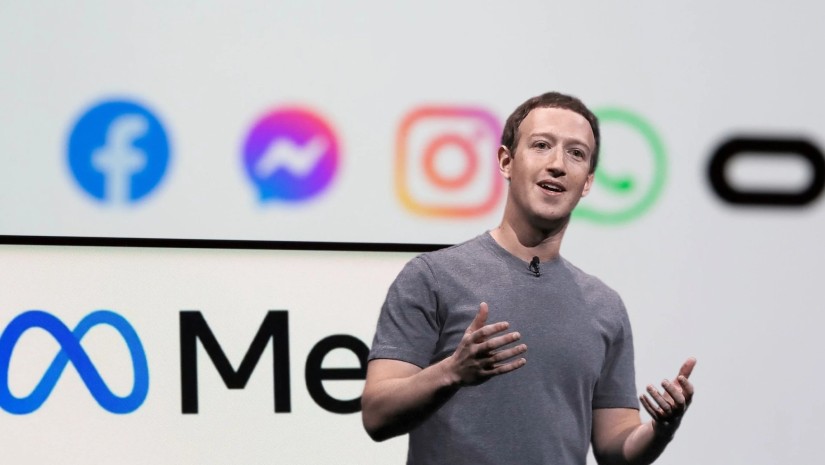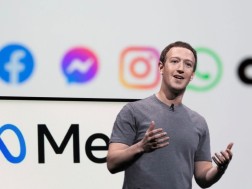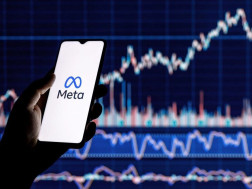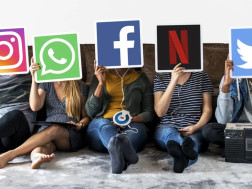Meta CEO Mark Zuckerberg kicked off the tech giant’s Connect developer conference on Wednesday with new AI products for consumers, including smart glasses that can answer questions and stream directly on Facebook, as well as bots that create photo-realistic images and an updated virtual-reality headset.
Standing in a courtyard at his company’s Menlo Park, California, headquarters, Zuckerberg told the audience of developers, employees and journalists that Meta is “focused on building the future of human connection” – and painted a near-future where people interact with hologram versions of their friends or coworkers and with AI bots built to assist them.
Zuckerberg described the products as bringing together virtual and real worlds and underscored that part of what Meta offered was low-cost or free AI that could be integrated into daily routines.
“Soon the physical and digital will come together in what we call the ‘metaverse’,” he said.
The company unveiled the next version of its virtual-reality headset, the Quest 3. It will cost $499 and begin shipping on October 10.
Zuckerberg also introduced an AI personal assistant that people can interact with using any of Meta’s messaging apps – along with a smattering of AI characters he called “a bit more fun”, such as “Max the sous chef”, who can help come up with ideas for dinner, or Lily, a “personal editor and writing partner”.
“These are just a few we have trained. There are a lot more coming,” he said.
He also introduced the next version of Meta’s Ray-Ban Stories smart glasses, which let people record videos or take photos, livestream, listen to music and interact with the Meta AI assistant.
“Smart glasses are the ideal form factor for you to let an AI assistant see what you are seeing and hear what you are hearing,” Zuckerberg said. The glasses will launch on October 17 and cost $299.
Corporate transformation
Meta is in the midst of a corporate transformation that it says will take years to complete. It wants to evolve from a provider of social platforms to a dominant power in a nascent virtual-reality world called the metaverse – sort of like the internet brought to life, or at least rendered in 3D.
But this transformation has been slower than expected – and has already cost billions of dollars – and Meta’s main business remains advertising on its social media platforms, Facebook and Instagram. Competition with TikTok remains Meta’s biggest challenge, said Insider Intelligence analyst Yoram Wurmser.
“A lot of this effort around chatbots and stories and other ways just to keep engagement going [like] AI-driven personalisation and stuff like that, that’s the overarching challenge for the company,” he said.
Squeezed by a slump in online advertising and uncertainty around the global economy, Meta has cut more than 20,000 jobs since last November. Zuckerberg dubbed 2023 the company’s “year of efficiency” as it reduces its workforce while focusing on more technical hires such as experts in AI to focus on Meta’s long-term vision.
Artificial intelligence is central to that vision. In July, Meta released the next generation of its AI large language model and made the technology, known as Llama 2, free for research and commercial use. On Wednesday, it unveiled an AI image generator named Emu, which creates images based on prompts from users.
Much like tech peers Google and Microsoft, Meta has long had a big research team of computer scientists devoted to advancing AI technology. But it has been overshadowed as the release of ChatGPT sparked a rush to profit off of “generative AI” tools that can create new prose, images and other media.
Zuckerberg said at the time that people can download its new AI models directly or through a partnership that makes them available on Microsoft’s cloud platform Azure “along with Microsoft’s safety and content tools,” Al Jazeera reports.























